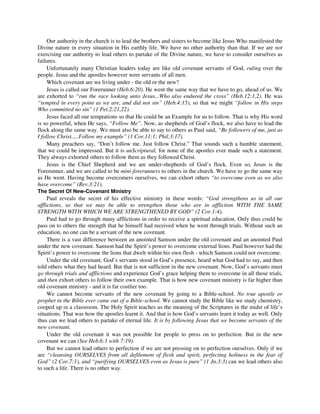The document discusses the role of servants of God, emphasizing their calling, preparation, and the importance of humility and obedience. It illustrates through biblical examples, such as Moses, that God prepares His servants through trials and that His expectations are high—any failure in obedience can lead to severe consequences. Ultimately, the document underlines that true effectiveness in ministry requires a broken spirit, reliance on the Holy Spirit, and a recognition of one's own insignificance in the grand scheme of God's work.










































